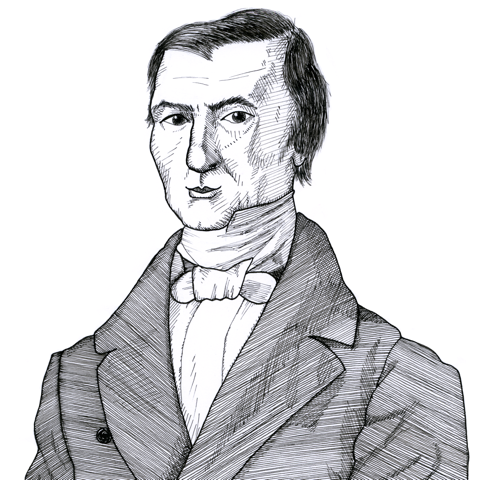
Bastiat on the state vs. laissez-faire (1848)
The French classical liberal economist and member of parliament Frédéric Bastiat (1801-1850) wrote in his revolutionary magazine in June 1848 that the policy of “laissez-faire”, or “let things be done” was in opposition to the policy of the state, which was to “prevent things being done”:
Economics
Laissez-faire! I will begin by saying, in order to avoid any ambiguity, that laissez-faire is used here for honest things, with the state instituted precisely to prevent dishonest things.
This having been said, and with regard to things that are innocent in themselves, such as work, trade, teaching, association, banking, etc., a choice must be made. It is necessary for the state to let things be done or prevent them from being done.
If it lets things be done, we will be free and optimally administered most economically, since nothing costs less than laissez-faire.
If it prevents things from being done, woe to our freedom and our purse. Woe to our freedom, since to prevent things is to tie our hands; woe to our purse, since to prevent things requires agents and to employ agents takes money.
In reply to this, socialists say: “Laissez-faire! What a disaster!” Why, if you please? “Because, when you leave men to act, they do wrong and act against their interests. It is right for the state to direct them.”
This is simply absurd. Do you seriously have such faith in human wisdom that you want universal suffrage and government of all by all and then you proclaim these very men whom you consider fit to govern others unfit to govern themselves?